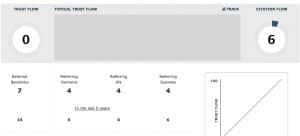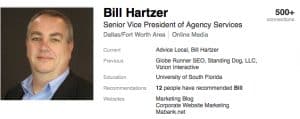 How to Tell If Someone is a Engine Optimization Expert
How to Tell If Someone is a Engine Optimization Expert
How to Tell If Someone is a Social Media Marketing Expert
I’m mad, and at the same time I can’t exactly make up my mind about the title of this post. If you know me, I’m almost never mad and frustrated like I am right now as I write this post. What’s gotten me steamed is the fact that there are so many self-proclaimed “experts” out there who are NOT experts. And it’s shame that it’s these very folks who are giving the whole digital marketing industry a bad rap.
Unfortunately with the SEO industry, there have been so many SEO experts who self-proclaimed their “expertness” and then either didn’t perform for their clients, didn’t know how to perform for their clients, or flat out took their clients’ money that the SEO industry is where it is right now. Now, I’m mad because we continue to see this problem–people selling digital marketing type services (SEO, PPC, Web Design, Social Media Marketing, etc.) and soon I think we’ll see Digital Marketing as a whole go down the same path, becoming the next sleazy SEO salesman.
Let me set one thing straight, though. I do not think any type of certification is the right way to go. Especially for marketing. Granted, Google AdWords and Google Analytics certification is a whole other ballgame–those are essentially “products” where someone can prove their knowledge of that product. But marketing certification shouldn’t exist–or cannot exist, as it involves a certain amount of creativity. But I digress. I don’t want this post to be about certification, so let’s leave it at that.
So How Do You Tell If Someone Is Really an Expert?
That’s a good question. After having actually working since the 1990s in various forms of digital marketing (SEO, PPC, Website Marketing, Internet Marketing, Affiliate Marketing, etc. etc.), I’ve been able to spot the difference between a real digital marketing expert and a fake digital marketing expert. Or the difference between a real SEO expert and a fake SEO expert. Or the difference between a real social media marketing expert and a fake social media marketing expert. Call it an intuition, or just the fact that I can spot the red flags.
Red Flags
Whenever you come across someone who uses titles in their profile(s) somewhere that indicate that they’re an “expert”, like one of these:
SEO Expert
Search Engine Optimization Expert
Search Engine Marketing Expert
Social Media Expert
Social Media Marketing Expert
Digital Marketing Expert
Internet Marketing Expert
Website Marketing Expert
Chances are that you need to look further. Do some research. I’m not saying that you shouldn’t trust them and their online profile, you need to verify that they really are the expert that you want to deal with–and hire. Here’s a list of what I personally do when I come across one of these folks. Keep in mind that I personally really do call myself a digital marketing expert (or SEO expert), and for proof, I welcome you to look at the following list.
First off, what you’ll want to be looking for when you perform each of these tasks is consistencies. Or inconsistencies. What you’ll find is that if someone is truly the expert that they claim to be, you’ll see consistencies across the board. If, for example, you see that someone has a lot of followers on one profile, look at other profiles to see if there are also followers on those profiles as well. If they list a website, then look a the links to the website and see if there are a lot of links. If they don’t have links, then you may be dealing with a self-proclaimed marketing expert versus a “real” expert. There are, for example, real reasons why someone may have 50,000 followers on Twitter and only a few hundred on Instagram or Facebook. We all don’t participate on all sites. So keep looking.
This is my list of how to determine if someone is an digital marketing expert (an expert in any discipline in the digital marketing/online marketing/internet marketing industry).
— First, Google their name. Look for their name without quotes. If they have a common name (or if their name is also the name of a famous person or celebrity), you may need to use quotes. However, a true digital marketing expert wouldn’t generally use the exact name of someone who is a celebrity or famous person. If they were smart, they’d use a name with a middle initial or use something like their middle name or something similar (i.e., First Name Middle Name Last Name). In other words, you should be able to find them really quickly in Google. If not, well, that may be a sign.
— Look at the search results for their name. You should find other profiles, other accounts, websites that they own, their company website, their profile on their company website. You should find their Twitter, LinkedIn, Facebook, Instagram, or a profile from a website where they wrote an article or several articles. In other words, you should see that they have control over their own search results for their own name. This is not difficult to do, and if they are a true digital marketing expert they will have several or all of these in place. If they don’t, then that might be something to consider.
— Look at their LinkedIn profile. Look at how many connections they have. Read their experience, look at what they list there. Frankly, someone can’t honestly be an expert at everything. They should specialize in something. Also, they should have posted at least a few articles on their LinkedIn profile. If they’re an expert, those articles should be on the same topic as what they’re an expert in.
Hint: If you look at their profile, and they have written articles on LinkedIn, you can go here and see how many followers they have (this is different then the number of connections, but in most cases it’s about the same): https://www.linkedin.com/today/author/bhartzer?trk=prof-sm. Just replace “bhartzer” with their LinkedIn profile ID.
BONUS: According to Casey Markee, “look for recommendations on LinkedIn”. Not endorsements, but recommendations–those are harder to get. If someone has a good amount of recommendations from others in this industry, then they’re most likely legit.
— Look at their Twitter profile. Look at how many people are following them versus how many people they’re following. I have always been of the mind that people should have more followers than the number that they’re following. As you can see above, I have over 16,00 followers and am only following about 200 people. I can only deal with the updates of about 200 people and respond to them. Imagine if I was following 100,000 people or even 16,000 people for that matter! No one can honestly follow that many people and actually respond to them on Twitter.
What’s important here, though, is consistency amongst social media profiles. If they have a lot of followers on Twitter, they should have a lot of connections on LinkedIn. If they have a lot of connections on LinkedIn, they should have a good number of followers on Twitter. It has to add up. It has to make sense. It’s easy to spam social media networks, and even buy followers.
— Look at their Facebook page. Some of us want our personal Facebook pages to be private, and I totally get that. But if they’ve taken the time to make it public (you have to actually tell Facebook to make it public), then browse through their posts, see if they’re posting about industry-related issues. Or, better, yet, if they’re a true digital marketing or social media marketing expert, they’ve taken then time to make a Facebook page for themselves (like mine at facebook.com/bhartzer) and/or have a company page. Does their Facebook presence line up with what they’re doing on other social media accounts like on Twitter or LinkedIn?
If they’re a social media marketing expert, they should have a really good presence, with a lot of followers, on the social media site that they’re an expert in.
If they’re truly a Facebook marketing expert, then they honestly should have a lot of followers on Facebook. Same goes for LinkedIn, Twitter, or Instagram. I know that they say that “The cobbler’s children go unshod.” Or “the son of a shoemaker has no shoes”. They’re too busy looking after their clients’ social media accounts that their own social media account doesn’t have any followers. I’ve heard it before, and that’s just hogwash. Social media marketing experts had better have a good following on social media. If they don’t, then there’s a problem. Or a reason to be suspicious.
After you’ve looked into their social media accounts, you’ve looked at the Google search results for their name, and you’ve found their company website, there’s one other place that I like to look. That’s the links that their website has. If you can’t find their website (digital marketing experts should have TheirName.com as a personal website), their social media profile should have a link to their company’s website. And they should have a profile page on that company website.
Investigate Their Links
If you’re truly a digital marketing expert, then your website and/or your company’s website should have links–and they should be appropriate links. Industry links. Links from other industry websites. Not just from spammy websites.
One self-proclaimed social media marketing expert that also does web design, SEO, and digital marketing has apparently quite a few connections on LinkedIn. I found this person through a list of connections, and it was a list of “how you rank for profile views” on LinkedIn. If you’re logged into LinkedIn, you can see it here: https://www.linkedin.com/wvmx/profile/rankings?trk=wvmx-profile.
I discovered this person because apparently they’re #3 on the list, and I haven’t seen them before. I clicked on their profile (I’m not naming names!) and started to investigate further. What I found was, in fact, disturbing to me. Another self-proclaimed social media marketing/digital marketing expert that obviously is spamming LinkedIn to get more profile views. I looked at this person’s posts on LinkedIn. I copied text from an article, put it in Google in quotes, and found that they just copied/swiped an article from another website and posted it on their profile. Duplicate content at it’s finest.
That got me madder. I Googled their name. I found a personal website (theirname.com) and then looked at the Majestic.com links to that site.
Trust Flow: 0
Citation Flow: 6
Links: 7

There’s about 7 links to their website, from 4 different domain names. Then I looked at the links to their company website:
Trust Flow: 0
Citation Flow: 10
Links: 11
Really?!? Here’s a digital marketing expert, someone who wants you to hire them, that copies articles from other websites and puts them on their LinkedIn profile as if they wrote it. Then, they have a company website that only has about 11 links to it. At first I thought it was new, but honestly it’s been around for 5+ years, as Majestic.com has historic links to it. So now, they’re just that bad at digital marketing. I won’t go into other details about how they’re claiming that they’re one some well known magazine’s top 10 list of digital marketing experts (that I couldn’t find anywhere) or whatever.
When you investigate someone online, someone who is claiming that they’re a digital marketing industry expert, then it’s going to be pretty clear if they are or not. They should have lots of articles written by them. They should be mentioned in articles. They should have really good looking social media profiles. The search results for their name should show the fact that they’re an expert at what they do. They should have links to their website(s). They should have complete control over their online presence. If they don’t, then they may not be the expert they claim to be.
So, what’s my point? Unfortunately we’ve come to a point where we’re now seeing social media marketers and digital marketers claim that they’re experts when they’re not. Apparently claiming that you’re an expert is a way of marketing yourself, even if you’re a self-proclaimed expert. I’ve got news for all those self-proclaimed digital marketing / social media marketing / internet marketing experts out there. You can’t decide for yourself that you’re an expert. It’s earned.
And if you’re going to hire someone, start using some of these methods that I’ve mentioned here to look into who you’re hiring. True experts will have a history, a past, and it’s pretty easy to see the difference between a fake expert and a real one.
Want to know if someone truly is a digital marketing expert? Contact me with their name and I’ll be happy to tell you after I’ve performed an online background check, of sorts, on them.

